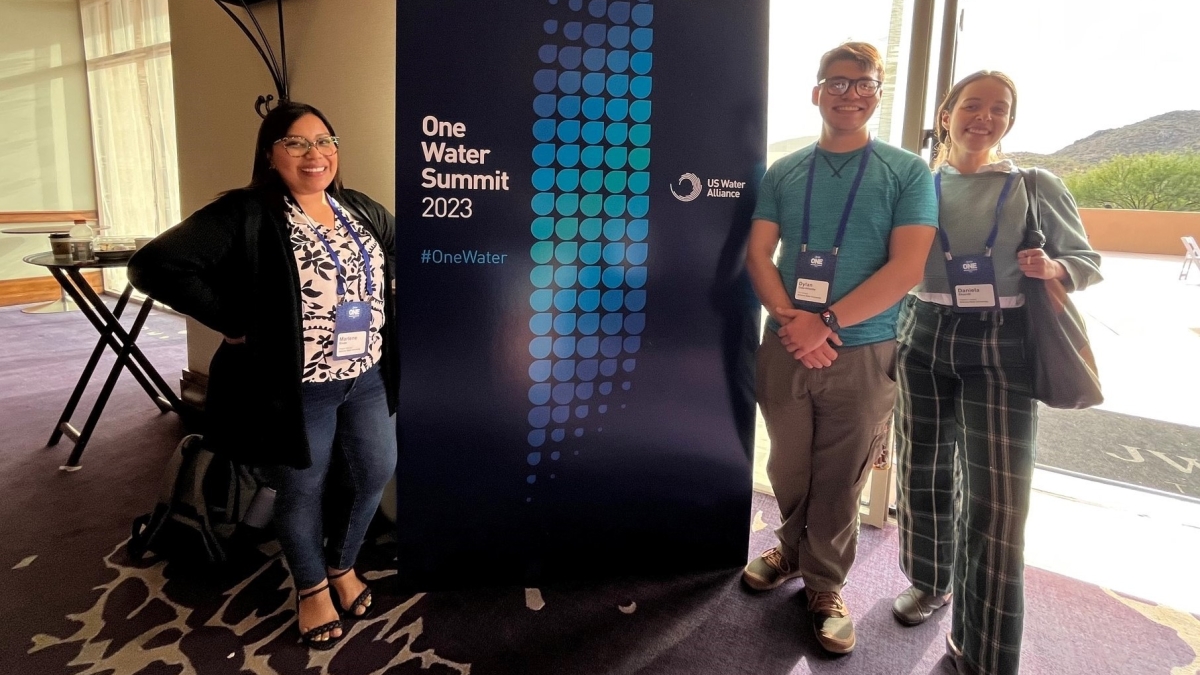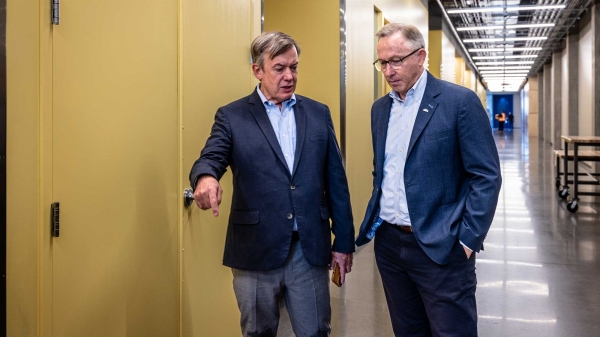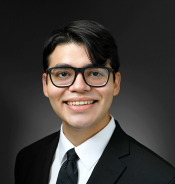ASU graduate student awarded NSF fellowship to study water insecurity along US–Mexico border communities

The Arizona Water for All (AW4A) team attended the 2023 One Water Summit to meet with state water leaders. From left: Marlene Rivas, program manager for Impact Water — Arizona; Dylan Diaz-Infante, researcher; and Daniela Sherrill, community participatory researcher. Photo courtesy Arizona Water for All
Water at the turn of a knob is something most of us take for granted. But there are still many places where people do not have access to clean running water. Dylan Diaz-Infante aims to change that.
Diaz-Infante is a sociocultural anthropology graduate student at the School of Human Evolution and Social Change at Arizona State University. He is passionate about water security and was recently awarded a prestigious NSF Graduate Research Fellowship Program (GRFP) grant to help fund his research on water-sharing within communities called "colonias" along the U.S.–Mexico border.
“My research focuses on these resilient communities that have developed across the U.S.–Mexico border outside of cities with roots in the Bracero Program of the 1950s, which brought Latin American workers from Mexico and other neighboring countries across the border to work in agriculture and other industries,” he said. “Workers were given rural lands to build homes on, literally from scratch. They came to be known as colonias.”
Diaz-Infante explained that, over the decades, cities, states and federal agencies have ignored the colonias in infrastructure planning, leaving many not only without running water — but also without electricity and paved roads. Although there has been some help from nongovernmental organizations, most of these communities have developed their own water utilities and obtained grant funding for underground water sources, he said.
“The research I proposed to the National Science Foundation — and what they gave me the Graduate Research Fellowship for — is to look into the ways colonias make sure everybody in the community has water,” Diaz-Infante said.
“This comes from an old concept in the social sciences from around the 1970s called the moral economy. It’s a kind of socially negotiated set of agreements that becomes a social infrastructure that’s dependent on people as opposed to a physical infrastructure, like pipes. In a moral economy, people use the language of morals and norms, like agua es vida, to secure water for those who need it from those who have it, and to find ways to maintain that access and work to keep or rework the arrangement in cases where people cannot fulfill their obligations at a given time.”
Diaz-Infante is also a researcher with the Arizona Water for All (AW4A) team, one of several pillars under the new statewide Arizona Water Innovation Initiative. As part of the AW4A team, he works under the leadership of President’s Professor Amber Wutich to collect data and do fieldwork with other scientists, legal scholars and community organizations who have ties to colonias communities.
“The ultimate goal of Arizona Water For All is to identify the most water-insecure communities across the state of Arizona and to conduct justice-oriented and impactful research where our collaborations can find the most effective interventions to help raise their overall level of water security, and to continually monitor these efforts to ensure that they work over the long term,” Diaz-Infante said.
More Local, national and global affairs

Arizona’s newest 'college town' says farewell to Mayor John Giles
A few short decades ago Mesa, Arizona, was considered just another quiet little suburb in the Phoenix metro area. Today, the city has surpassed Miami, St. Louis and Atlanta in population size and…

At home and abroad, a fight for freedom and democracy
“If John McCain were here today, he would be on the front lines, standing with our democratic allies and serving as a voice for the voiceless, and boy, would he be loud,” said the McCain Institute’s…
ASU faculty, students help incarcerated women renovate prison classroom
When asked to imagine what a room inside a prison might look like, most people would have trouble thinking of anything warm and inviting.For those experiencing incarceration, it's also difficult to…
